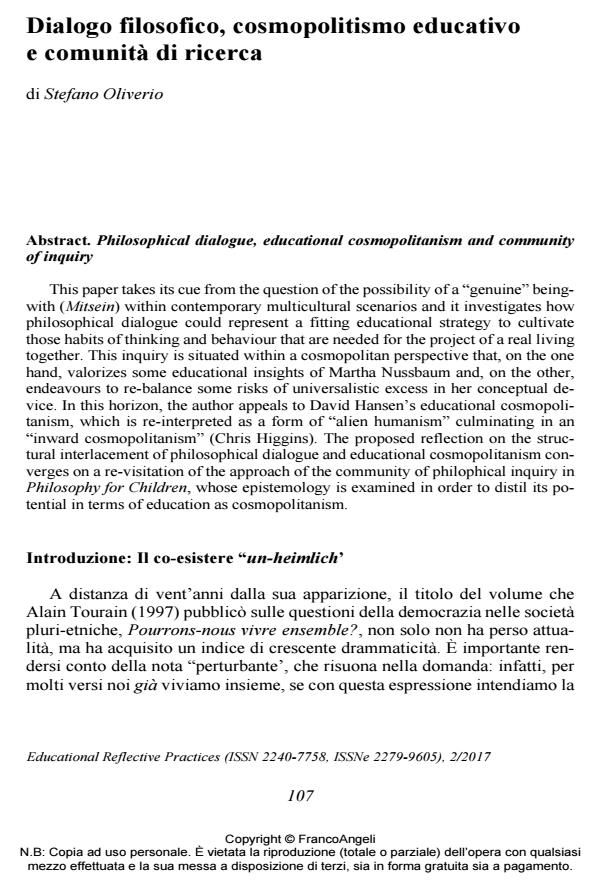Philosophical dialogue, educational cosmopolitanism and community of inquiry
Journal title EDUCATIONAL REFLECTIVE PRACTICES
Author/s Stefano Oliverio
Publishing Year 2018 Issue 2017/2
Language Italian Pages 21 P. 107-127 File size 239 KB
DOI 10.3280/ERP2017-002008
DOI is like a bar code for intellectual property: to have more infomation
click here
Below, you can see the article first page
If you want to buy this article in PDF format, you can do it, following the instructions to buy download credits

FrancoAngeli is member of Publishers International Linking Association, Inc (PILA), a not-for-profit association which run the CrossRef service enabling links to and from online scholarly content.
This paper takes its cue from the question of the possibility of a "genuine" be-ing-with (Mitsein) within contemporary multicultural scenarios and it investigates how philosophical dialogue could represent a fitting educational strategy to culti-vate those habits of thinking and behaviour that are needed for the project of a real living together. This inquiry is situated within a cosmopolitan perspective that, on the one hand, valorizes some educational insights of Martha Nussbaum and, on the other, endeavours to re-balance some risks of universalistic excess in her conceptual device. In this horizon, the author appeals to David Hansen’s educational cosmopolitanism, which is re-interpreted as a form of "alien humanism" culminating in an "inward cosmopolitanism" (Chris Higgins). The proposed reflection on the structural interlacement of philosophical dialogue and educational cosmopolitanism converges on a re-visitation of the approach of the community of philophical inquiry in Philosophy for Children, whose epistemology is examined in order to distil its potential in terms of education as cosmopolitanism
Stefano Oliverio, Dialogo filosofico, cosmopolitismo educativo e comunità di ricerca in "EDUCATIONAL REFLECTIVE PRACTICES" 2/2017, pp 107-127, DOI: 10.3280/ERP2017-002008